 You don’t need to be a politician to know Daw Aung San Suu Kyi, under present circumstances, is not going to be our President for the next 5 years.
You don’t need to be a politician to know Daw Aung San Suu Kyi, under present circumstances, is not going to be our President for the next 5 years.
That wasn’t apparent in March, when the 7th meeting between the government’s Union Peacemaking Work Committee (UPWC) and the ethnic armed organizations’ Nationwide Ceasefire Coordination Team (NCCT) was held. The proposal to amend Article 59 (f) which bars anyone with children holding citizenship of a foreign country was yet to be resolved by the parliament which it did a few months later by rejecting the bill.
On the third day of the meeting, 19 March, Yup Zau Hkawng, the happy-go-lucky leader of the Kachin Peace-talks Creation Group (PCG) was asked on the sidelines, “Who are you going to support for President: U Thein Sein, U Shwe Mann, Daw Aung San Suu Kyi, or Senior General Min Aung Hlaing?”
He was anything but hesitant about it. “We don’t know who’s going to be President, do we? “he asks rhetorically. “But I urge everyone to support any candidate that promises continuation of the peace process. Because without peace, this won’t be a country worth living.”
The incumbent who met the 9 top leaders of the EAOs on 9 September in Naypyitaw certainly echoed Yup’s words when he said, “We cannot move democratic transition without having peace.”
Now it looks like the President, who is also the leader of the ruling Union Solidarity and Development Party (USDP), isn’t the only one who is working for peace.
Aung San Suu Kyi, his most formidable rival, after years and months of silence on the subject, is coming forth with her position on the peace process.
During her election campaign visit to Taunggyi last weekend, 5-6 September, she had toured two of its townships, where she promised to “prioritize the peace process and dialogue, and immediately work on it,” if her party wins, adding that she would stand by her promise to convene a Second Panglong conference. “We will never break our promise,” she said.
For the non-Burmans, especially the Shans, nothing else is sweeter in their ears than the word “Panglong”, and her resurrection of it is sure to win her votes, not a few if not overwhelming.
She did take her time and timing to say that in public.
In May, her party sent representatives to participate in the informal consultations on the draft Framework for Political Dialogue. Then last month, on 22 August, she received representatives from the Karen National Union (KNU), to discuss the ongoing peace talks.
According to sources close to the KNU, she had made 3 major statements, among others:
- The NCA should be signed before the elections
- The Framework for Political Dialogue (FPD) should be agreed before the elections
- The political dialogue (PD) should start after the elections
Taking for granted that the information is correct, it means she wants the first and second phases of the roadmap —NCA signing and FPD drafting —over and done with during the incumbent’s term while he has still a lot of pull with the military.
Which seems to make sense, because overcoming the first two phases might prove to be a bigger challenge to her than the third phase — political dialogue — that may take a while— 5-10 years according to the Senior General — to finish, whether or not she’s the government.
As for the ethnic parties, most if not all, no doubt are for the peace process and Panglong.
All in all, it thus appears whoever is going to win, the peace process is going to win. If so, it is now up to the people to decide which parties — USDP, NLD or the ethnic parties—will not only be working for peace, but also able to pull them through the long hard road to peace in our land.





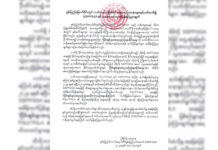
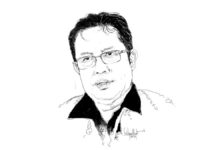
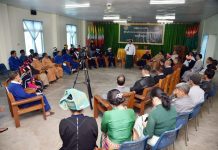
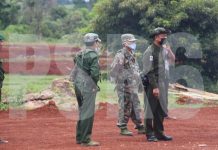
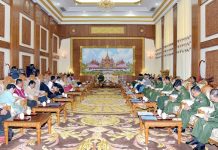






Leave a Comments